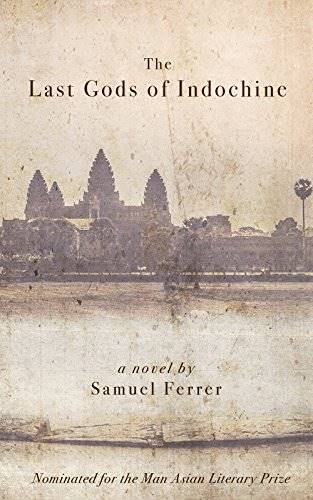
Great writing, and an interesting use of historical fiction with two separate but ultimately connected storylines from the past. The first story is set in the 13th Century reign of the Khmer King Jayavarman VIII and the second between the 1860s and1920s. This is a well written quality read. I found every chapter to be entertaining in of itself and so maintaining a strong desire to read on. I would have liked an ending with a few less swirling dreams and rather more ‘facts’. Most of the characters names are borrowed from history but precious little that is actually known about them. With such a thin veneer of known history perhaps the ending had to be mysterious and ephemeral, leaving a host of possible paths along with the unsubstantiated assertion that science and not religions’ unprovable possibilities dictates our fate.
I am critical of historical fiction that use long dead names but so little of the admittedly thin history. I can forgive such a high degree of storytelling in the ancient plot, but the use of real people from modern history with the employment of so little factual information about them is hard to accept. Nevertheless, I can’t imagine that many living relatives will find much to question. Ferrer avoids deformation of character and we are already a century away from their variously esteemed lives. The broad-brush strokes all feel to accurately reflect the periods, and magic aside, are very believable. Perhaps I am allowing my love of history to make me over critical of this historical fiction, and certainly many reviews suggest that I am.
Ferrer’s descriptive writing is first class. I can imagine that all his readers entertain the same picture and social interactions almost exactly as I do. I could easily imagine myself to be an observer on the ’passenger’ boat, in the biplane, or climbing the walls of Angkor Wat. I could smell the gangrene, feel the shacking earth, hear the booming shells, recalled in the mind of the volunteer auxiliary nurse, from the front-line hospital wards of WWI. I could feel that I was amongst elephants, monkeys and exotic people in two distinctly woven times in Indochina.
Why does the title use the word Indochine rather than Indochina, when it is written in English? I have no idea. I see no sign of a French language version of this book. And why the last gods, when that certainly isn’t in any way the case? Perhaps, once more my concern is isolated and obtuse.
This is a very enjoyable read, especially for those that like to set their minds on travels through distant times and civilisations. Five stars, where those stupidly uninformative and variably indicative ‘likes’ are required. This book is strong on description that drives it plot rather than plot that needs description between its scaffolding. Good writers can take one anywhere in time, real or imaginary, Ferrer can do that with aplomb.

 Log in with Facebook
Log in with Facebook 






